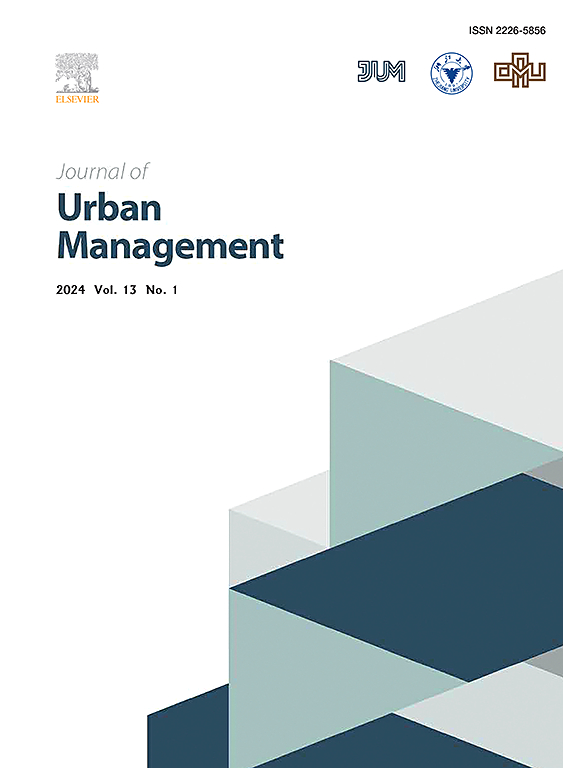Housing infrastructure and women in care: COVID-19 experiences from urban informal settlements of Khulna, Bangladesh
IF 5
2区 社会学
Q1 URBAN STUDIES
引用次数: 0
Abstract
Urban informal settlements in the Global South, home to over a billion people, face significant challenges due to limited space and inadequate Water, Sanitation, and Hygiene (WASH) and Solid Waste Management (SWM) infrastructure. These deficiencies significantly impact women's ‘triple care role’—reproductive, productive, and community caregiving responsibilities—within their families, society, and the economy, exacerbated by the COVID-19 pandemic. This study aimed to explore how inadequate infrastructure in three informal settlements in Khulna, Bangladesh, influenced women's caregiving roles during the pandemic and their responses. Through semi-structured interviews with 24 women community leaders, who served as front-line workers during COVID-19, and supporting fieldwork, we discovered that women adapted by modifying their habits and the spatial layouts of their homes for isolation. Although some improvements were noted in WASH and SWM conditions, significant challenges remained, particularly in temporary housing, household adaptability, and reproductive responsibilities Despite facing informal employment, financial constraints, and food insecurity, women showed resilience through leadership, socio-political networking, and community initiatives. This study underscores the urgent need for adaptive infrastructure planning to improve living conditions in informal settlements, with a focus on proactive management of both spatial and non-spatial resources to enhance adaptation in resource-scarce contexts.
住房基础设施和护理中的妇女:孟加拉国库尔纳城市非正式住区的COVID-19经验
拥有超过10亿人口的南方国家的城市非正式住区由于空间有限以及水、环境卫生和个人卫生(WASH)和固体废物管理(SWM)基础设施不足而面临重大挑战。这些缺陷严重影响了妇女在家庭、社会和经济中的“三重照顾角色”——生殖、生产和社区照顾责任,COVID-19大流行加剧了这种情况。本研究旨在探讨孟加拉国库尔纳三个非正式住区基础设施不足如何影响妇女在大流行期间的护理作用及其应对措施。通过对24名在COVID-19期间担任一线工作人员的女性社区领袖进行半结构化访谈,并支持实地调查,我们发现,女性通过改变自己的习惯和家中的空间布局来适应隔离。尽管在WASH和SWM条件方面取得了一些改善,但仍存在重大挑战,特别是在临时住房、家庭适应性和生育责任方面。尽管面临非正规就业、财政限制和粮食不安全,但妇女通过领导、社会政治网络和社区倡议表现出了复原力。本研究强调迫切需要适应性基础设施规划,以改善非正式住区的生活条件,重点是空间和非空间资源的主动管理,以增强资源稀缺环境下的适应能力。
本文章由计算机程序翻译,如有差异,请以英文原文为准。
求助全文
约1分钟内获得全文
求助全文
来源期刊

Journal of Urban Management
URBAN STUDIES-
CiteScore
9.50
自引率
4.90%
发文量
45
审稿时长
65 days
期刊介绍:
Journal of Urban Management (JUM) is the Official Journal of Zhejiang University and the Chinese Association of Urban Management, an international, peer-reviewed open access journal covering planning, administering, regulating, and governing urban complexity.
JUM has its two-fold aims set to integrate the studies across fields in urban planning and management, as well as to provide a more holistic perspective on problem solving.
1) Explore innovative management skills for taming thorny problems that arise with global urbanization
2) Provide a platform to deal with urban affairs whose solutions must be looked at from an interdisciplinary perspective.
 求助内容:
求助内容: 应助结果提醒方式:
应助结果提醒方式:


